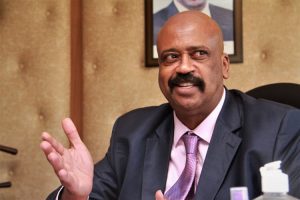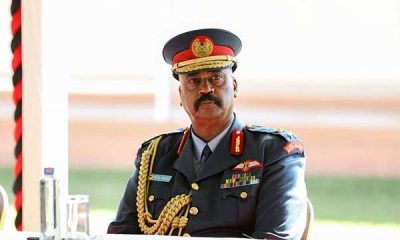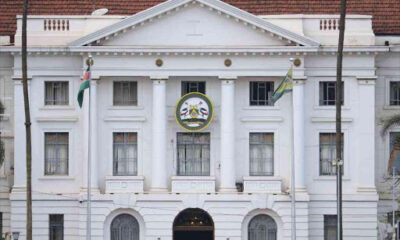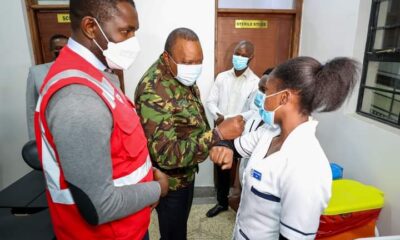Politics
The Return of NMS? Ruto and Sakaja To Sign A Pact on Managing Nairobi
“Nairobi cannot continue to be the city in filth,” he declared, outlining an ambitious plan to tackle waste management, improve roads, and install street lighting across the metropolis.
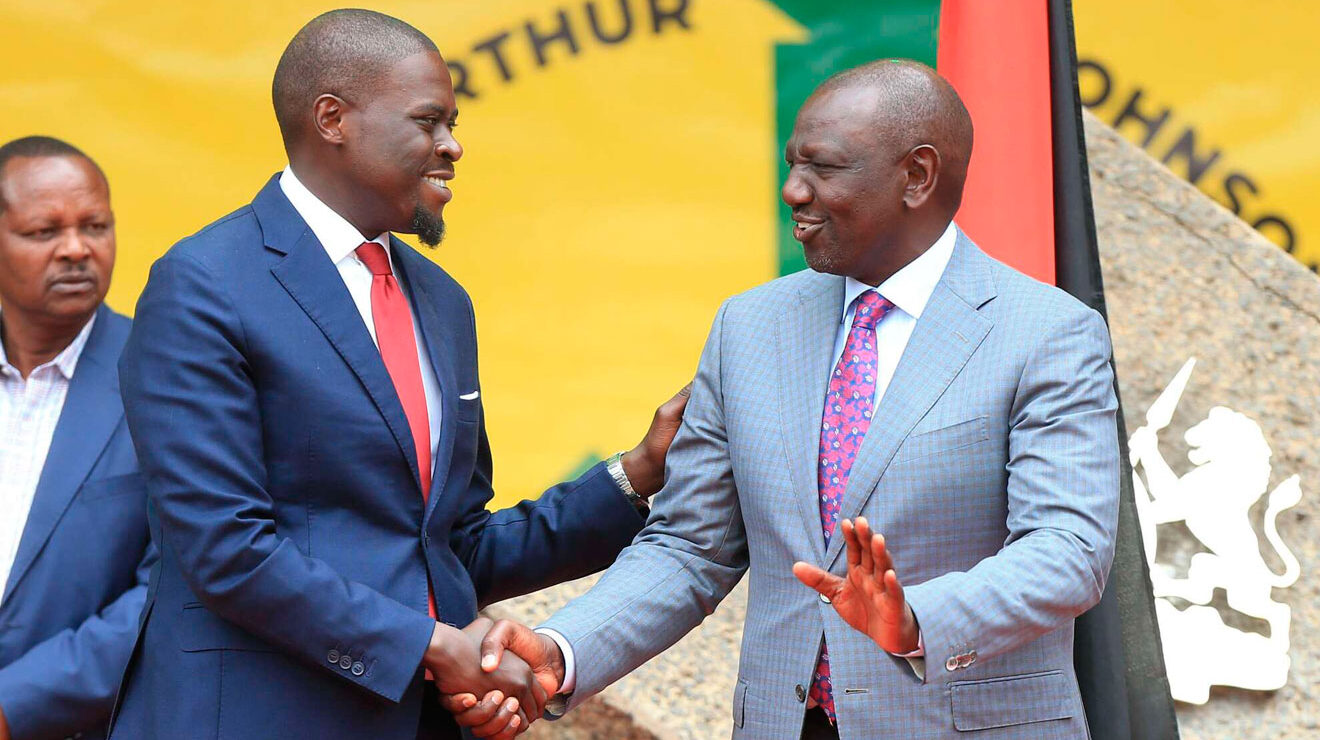
President William Ruto’s announcement of a partnership with Nairobi Governor Johnson Sakaja to manage the capital has triggered memories of the controversial Nairobi Metropolitan Services and raised questions about the county government’s capacity to deliver services.
Nairobi residents nursing memories of the Nairobi Metropolitan Services (NMS) were caught off guard on Sunday when President William Ruto announced plans to enter into a partnership with Governor Johnson Sakaja to restore the capital’s image.
The announcement has sparked debate about whether this marks a return to the transfer of functions that characterized the Mohammed Badi-led NMS era.
Speaking at a public event, President Ruto did not mince his words about the state of the capital.
“Nairobi cannot continue to be the city in filth,” he declared, outlining an ambitious plan to tackle waste management, improve roads, and install street lighting across the metropolis.
The partnership, according to Governor Sakaja, will involve the private sector and focus purely on development.
He cited a collaboration with a Chinese company to generate 45 megawatts of power from waste processed at the Dandora dumpsite as an example of what the initiative could achieve.
However, the announcement has exposed deep divisions among Nairobi’s political leadership.
Kileleshwa Ward Representative Robert Alai was particularly scathing in his assessment, describing the partnership as an indictment of Sakaja’s administration.
“The problems in Nairobi is the incompetence of the governor. The governor cannot bring services, he cannot talk with the corporates, he cannot talk to the private sector,” Alai said.
The criticism speaks to broader frustrations with service delivery in Nairobi. Despite receiving the largest allocation from the County Allocation Revenue, the capital continues to grapple with mountains of uncollected garbage, potholed roads, broken street lights, and clogged drainage systems.
Images of waste heaps along Juja Road and in Eastleigh have become emblematic of a city struggling with basic sanitation.
Embakasi Central MP Benjamin Gathiru echoed concerns about accountability, questioning why additional resources should be channeled to City Hall when current allocations appear to be mismanaged.
“It is just that the money is being stolen by diverting it to pay lawyers and the companies that are said to be collecting garbage, yet we still have a problem with uncollected garbage,” he said.
Nevertheless, not all leaders view the partnership negatively.
Makadara MP George Aladwa welcomed the President’s intervention, noting that a clean and attractive capital is essential for attracting investors and spurring development.
President Ruto revealed that cleanup efforts are already underway through the Nairobi River Regeneration Project, which has employed thousands of young people.
He committed the national government to providing resources for the initiative and pledged that all roads in the capital would be tarmacked.
“We must not have mud along our roads. This city will have street lights so that we make sure that Nairobi is clean, becomes motorable and a city in the light, not in darkness,” he said.
The announcement inevitably draws comparisons to the NMS, which was established in 2020 through a deed of transfer that saw four key county functions—health, transport, public works, and planning—moved to the national government under Major General Badi.
While the NMS achieved notable successes in road construction and market renovations, it was also criticized for undermining devolution and sidelining elected county leadership.
The NMS was eventually dissolved after the 2022 elections, with functions reverting to the county government.
Governor Sakaja, who campaigned on a platform of reclaiming Nairobi’s autonomy, now finds himself in the awkward position of inviting national government intervention barely three years into his term.
Critical questions remain unanswered.
What specific functions, if any, will be transferred under this new partnership? Will the county retain control over revenue collection and budget allocation? And most importantly, how will this arrangement differ from the NMS model that many saw as an affront to devolution?
The President has promised that details of the partnership will be finalized soon.
Until then, Nairobi residents can only watch and wait, hoping that this latest intervention will finally deliver the clean, functional city they have long been promised, rather than another experiment in governance that prioritizes politics over service delivery.
Kenya Insights allows guest blogging, if you want to be published on Kenya’s most authoritative and accurate blog, have an expose, news TIPS, story angles, human interest stories, drop us an email on [email protected] or via Telegram
-

 Grapevine2 weeks ago
Grapevine2 weeks agoRussian Man’s Secret Sex Recordings Ignite Fury as Questions Mount Over Consent and Easy Pick-Ups in Nairobi
-

 News1 week ago
News1 week agoTHE FIRM IN THE DOCK: How Kaplan and Stratton Became the Most Scrutinised Law Firm in Kenya
-

 Investigations1 week ago
Investigations1 week agoMulti-Million Dollar Fraud: Three Kenyans Face US Extradition in Massive Cybercrime Conspiracy
-

 Economy1 week ago
Economy1 week agoIran Demands Arrest, Prosecution Of Kenya’s Cup of Joe Director Director Over Sh2.6 Billion Tea Fraud
-

 Business1 week ago
Business1 week agoA Farm in Kenya’s Rift Valley Ignites a National Reckoning With Israeli Investment
-

 Africa2 weeks ago
Africa2 weeks agoFBI Investigates Congresswoman Ilhan Omar’s Husband’s Sh3.8 Billion Businesses in Kenya, Somalia and Dubai
-

 Grapevine4 days ago
Grapevine4 days agoA UN Director Based in Nairobi Was Deep in an Intimate Friendship With Epstein — He Even Sent Her a Sex Toy
-

 Politics2 weeks ago
Politics2 weeks agoSifuna, Babu Owino Are Uhuru’s Project, Orengo Is Opportunist, Inconsequential in Kenyan Politics, Miguna Says

